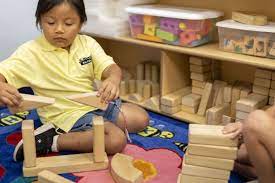Early childhood education degrees may be used in a broad range of fields. However, many people are only aware of the specific roles they can play in educating children, such as public or private kindergarten teachers. To be sure, degree programmes in early childhood teaching provide students with a thorough grounding in all aspects of a child’s growth and development, both mental and physical, normal and special.
As a result, a bachelor of early childhood education may be helpful not only for those who want to work in the field and those who want to open their daycare.
Additionally, programmes often offer electives that widen the degree’s potential use scope. For example, certain universities’ childcare and preschool management degree programmes combine business and management education.
Why Earn a Bachelor’s in Early Childhood Education?
Almost every teaching position in a public or private school requires a bachelor’s degree in early education. Most employment in public and private preschools, as well as many childcare facilities, need it. Counsellors, secretaries, nurses, and administrators in public and private schools may also need it. Other educational roles, such as those in schools, daycares, and programmes that use remote learning to deliver instruction, also call for it.
Careers in Administration and Related Fields
Graduates of a well-rounded degree have a wider choice of career options. As a result of completing such a degree, graduates are prepared to educate children and assume leadership roles in educational institutions such as daycares and preschools. You must have business, child development, and education skills to succeed as a school administrator.
Meanwhile, the market for tools to help children develop their early learning abilities is soaring. Products that assist young children in learning about colours, letters, and words may be found in various forms, from phonics sets based on popular characters to smartphone applications and video and television shows. For a new product to be successful and appealing, it takes early education and commercial expertise.
Alternatives for Instruction
For those who have always wanted to be teachers, now is the best moment to do it. In public schools, there is an increasing need for instructors with advanced degrees and training. Technology-savvy educators, familiar with individualised instruction and willing to keep up with current developments in the field of education, are in high demand. As a wide range of learning styles and abilities are likely to present in the same classroom, a thorough knowledge of developmental stages is an asset.
Private schools are growing in popularity due to the growing dispute about the efficiency of specific educational resources. The student-to-teacher ratio is often smaller in this setting, and kids may anticipate more personalised attention. Expectations of academic success are frequently greater for children whose parents enrol them in public school. Here, a well-rounded degree can aid instructors in communicating with parents about their children’s requirements and providing insight into numerous educational courses for youngsters with varying capacities.
Centres for Education
A bachelor of early childhood education is also required to work in learning centres for children with developmental or physical problems. A broad range of assistive technology tools is accessible to students with disabilities today, including text-to-speech software, adaptable keyboards for limited movement, and various other gadgets. An early childhood education degree programme will also cover learning difficulties and developmental delays. There is a need for teachers who can tailor the curriculum to meet the specific needs of children on the autistic spectrum, who have attention deficit hyperactivity disorder (ADHD), or who have sensory processing disorder (SPD).











